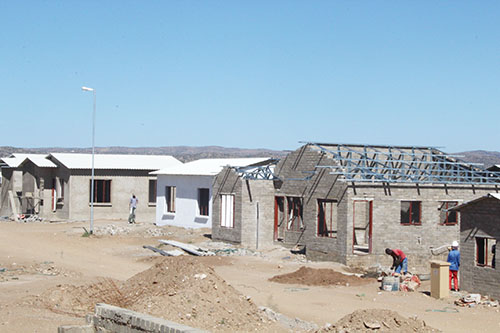- DO NOT UNDERSTATE THE IMPORTANCE OF DUE DILIGENCE
The average Kenyan looking to get into real estate is always paranoid. This is because cases of people buying land whose title deeds are later revoked are rampant in many parts of the country.
“We have had people asking us to do a title deed verification when their investments have already gone up in smoke.
By then it is too late, and there is little we can do. To avoid being sucked into such unscrupulous deals, we advise land buyers to consult professionals , who will carry out due diligence to verify the legitimacy
of the property in question,” says Mr Kibire.
Even when buying property from a family member, a friend or a person you think you know very well, resist the temptation to skip carrying out due diligence as unforeseen circumstances could later lead to
life-long scarring.
“We know of people who spend the rest of their lives servicing loans for properties that turned out to be phony,” Mr Cheboror offers.
Given the kind of emotions land issues raise, it is certainly better to be safe than sorry.
- SURROUND YOURSELF WITH THE RIGHT TEAM
When getting started, it is advisable to build a team of professionals you can easily consult before making any move, especially one that involves high financial expenditure.
A property valuer, a conveyancer, an accredited contractor and a loan adviser are a few of the professionals whose advice you cannot afford to shrug off.
While adding the professionals to your payroll might seem costly at a glance, a closer look will reveal that it actually saves you money.
Mr Kibire, the CEO, cites the case of a client who wanted to buy a house in Nairobi valued at Sh10 million, a week before the interview.
Before he could seal the deal, however, the prospective buyer decided to call the valuation firm for advice.
“Our team visited the property and advised the client not to pay a cent more than Sh7 million for the property. He later sealed the deal for Sh6.5 million. While we only charged him 0.25 per cent of the property
price for our services, he ended up saving a huge sum,” Mr Kibire says.
- BUY THE WORST HOUSE IN THE BEST NEIGHBOURHOOD
“The importance of location in any real estate investment cannot be overemphasised.
This is because property in prime locations is measured not so much by the cost of construction, but by the value and high appreciation rate of the land on which the property sits,” Mr Cheboror says.
Investing in a simple establishment in a high-end neighbourhood always pays handsomely.
However, the reverse can be the worst mistake an investor could ever make. Buying the best house in the worst neighbourhood, he warns, will always turn out to be disastrous as the value of the land
underneath hardly appreciates, and future buyers will most likely shun the property because of the neighbourhood.
- BEAR IN MIND THE 1 PER CENT RULE
When putting up commercial or residential property to let, seek advice from your agent and do your calculation in such a way that, when the property is finally ready for occupation, the money collected
as monthly rent is always more than 1 per cent of the total investment cost. This is what Mr Kabire refers to as the 1 per cent rule.
“Say you put up rental apartments at a cost of Sh1 million. The total monthly rent collected from an apartment should always be at least Sh10,000.
This will enable you to recoup your investment in less than 10 years,” Mr Kibire says.
However, the 1 per cent rule is not cast in stone.
“Some investors recoup the principal investment in a shorter time, even four to six years. But those whose buildings on prime land in places such as Westlands and Kilimani take as long as 30 years.
These investors rest easy knowing that the land on which their buildings sit is gaining value at a much higher rate than the rents,” he adds.








